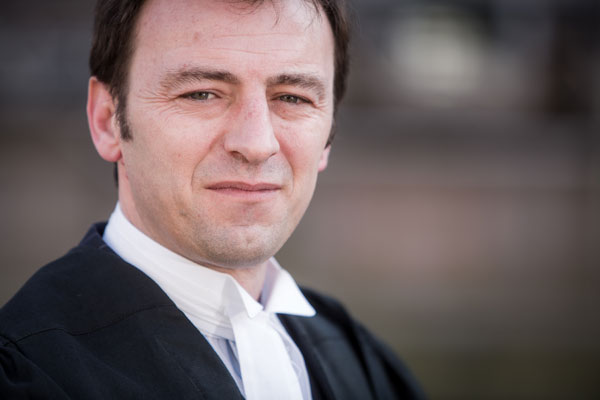

A doctor has told a jury that the injuries she found on a woman, who claims she was raped, made it more likely that she was telling the truth.
Dr Virginia French, who examined the woman shortly after she had rung the police, and again three days later, said in the Royal Court that bruising found on the woman's body increased the likelihood that sex had been forced.
Indian national Vikas Dhar (43) denied two counts of rape, which are alleged to have happened in the early hours of 14 September last year. It is claimed this happened in an apartment of the Sarum Hotel, where Mr Dhar was staying, after the two people had had consensual sex.
The woman alleges that the defendant forced her to have sex with him after she had discovered that he was married with children. She says she pushed him away, and he left the bedroom but quickly returned holding a knife.
She alleges that, although he put it down, she felt terrified and felt unable to escape.
Pictured: The rape is alleged to have happened in an apartment at the Sarum Hotel last September.
In her two examinations of the woman, Dr French also found bruises on her breasts, back, hip and legs.
The doctor, who was speaking via video link from Australia, told the court on Wednesday: “Her injuries are supportive of allegation of rape, and when we look at the presence of multiple sites of injury, a higher proportion of women with non-genital injuries had been raped. The higher the frequency, the greater likelihood of rape.”
She also told Crown Advocate Julian Gollop how the woman had changed when speaking to her about seeing the knife.
“At that point, she became very frightened and her demeanour changed significantly,” said Dr French. “She had been very calm telling me her story with minimal distress but when she described the knife, she became tremulous. I still get tingles when I think about the way she described her fear. She told me she thought, 'This is it; this is how I go.'”
When questioned by defence Advocate Olaf Blakeley, Dr French conceded that injuries could also be suffered during consensual sex but that research suggested that it was more likely that it had been non-consensual.

Pictured: Advocate Olaf Blakeley, who is defending Mr Dhar.
Advocate Blakeley, however, argued that one of the papers quoted by Dr French also said that there was a “real danger” in reaching conclusions by compiling data together from different studies - something he said Dr French had done.
The final witness of the trial, forensic scientist Katherine Gorman said that while Mr Dhar’s DNA had been found in swabs taken from the woman, it was impossible to say conclusively that it had been transferred through intercourse.
On Thursday, the Crown and defence are due to give their closing statements before the judge, Deputy Bailiff Robert MacRae, gives his summary of the case. The 12-person jury will then retire to consider their verdict.
Comments
Comments on this story express the views of the commentator only, not Bailiwick Publishing. We are unable to guarantee the accuracy of any of those comments.